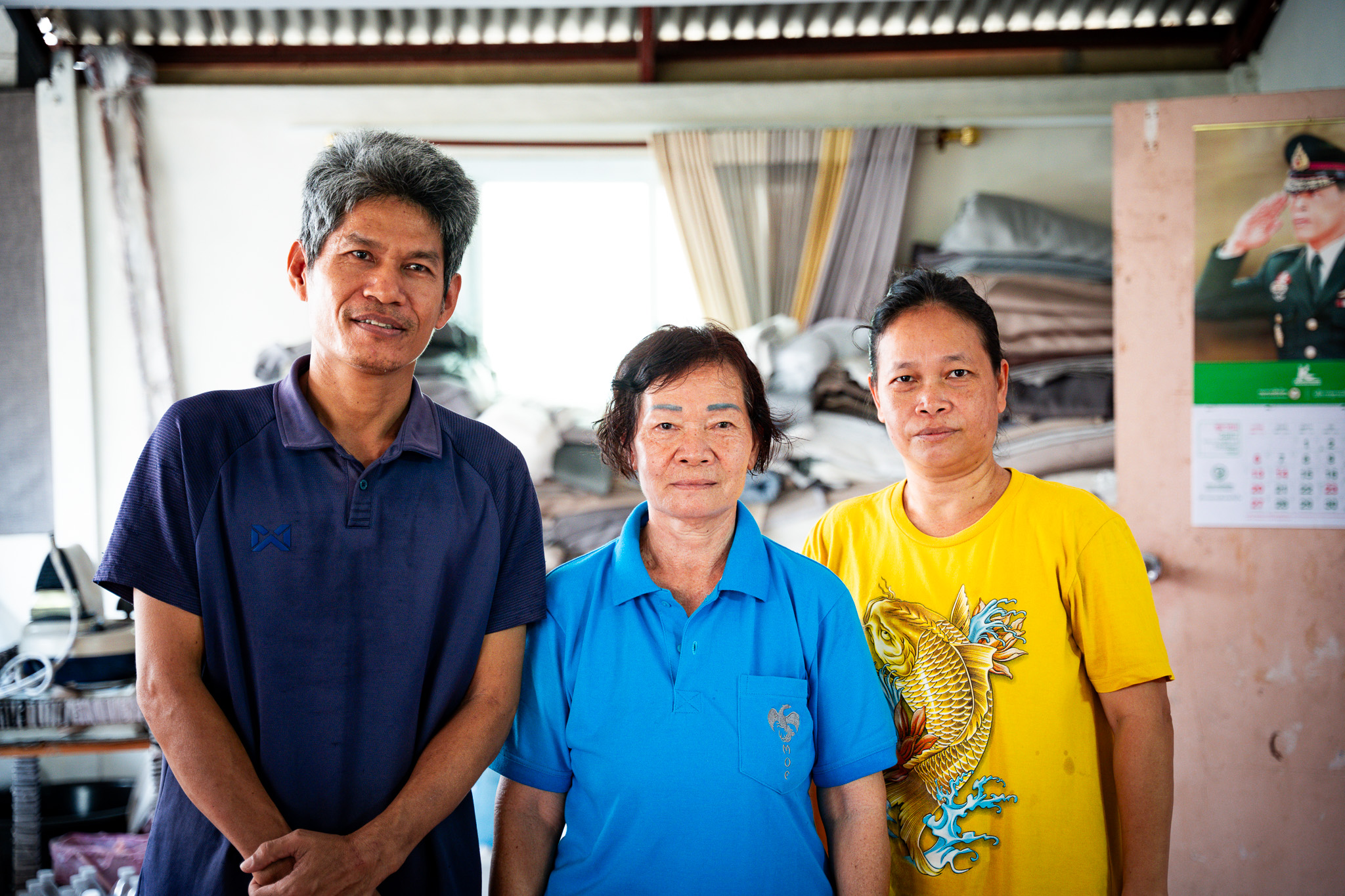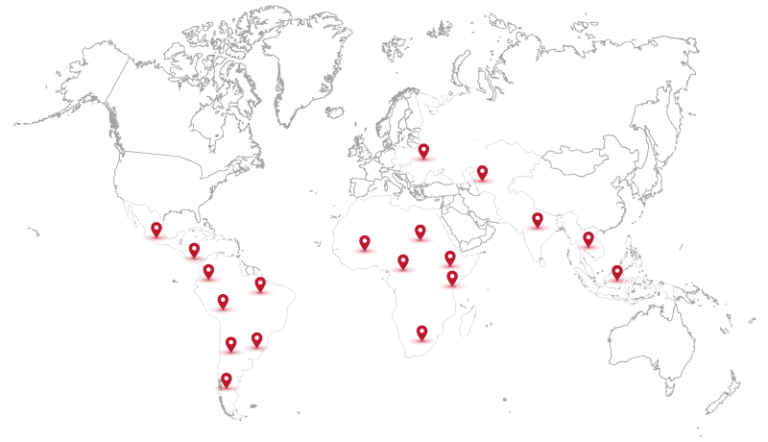Mrs. Boonchan Pannawong is a 66-year-old homeworker living in the outskirts of Bangkok, in a district called Nong Chok, about an hour’s drive from the city center. She lives with her daughter, son-in-law, and grandchildren, and like many others in their community, they work from home to support their family.
As members of the “Gloom Sarn Takra” group (Basket Weavers Group), Mrs. Boonchan and her family are part of a larger network of home-based workers in Thailand. Their primary income comes from sewing curtains, which they produce from orders brought by an intermediary. This person visits their house, bringing the required textiles and other materials. Mrs. Boonchan and her family are paid by the meter for the curtains they sew. However, they bear the costs of electricity, machinery, and other tools needed for their work, adding a layer of financial responsibility to their home-based business.
Mrs. Boonchan reflects on how these skills were first learned: “We first learned these skills when a teacher came to our community to train us. After learning, we passed on the knowledge to other members in the village, helping them earn additional income for their families. Everyone in our group has come together to work and support each other, and that’s how we make things happen in our community.”
The family’s daily routine is a balancing act of caregiving and production work. Every morning, Mrs. Boonchan prepares meals and cares for her grandchildren. Afterward, she joins her daughter and son-in-law in making curtains and completing other household tasks. While they’ve gained valuable skills from community training, their work is still labor-intensive. They rely heavily on the orders brought by intermediaries, with little security or recognition for their labor.
Like millions of home-based workers around the world, Mrs. Boonchan and her family fight for recognition, equality, and access to decent work. Their stories, like so many others, remain untold. Yet, they are the backbone of local economies, working tirelessly from their homes to support their families and communities.
HomeNet International (HNI) is proud to support home-based workers like Mrs. Boonchan and her family, advocating for better protections, fair wages, and greater visibility for this often-overlooked workforce. As we continue to push for the ratification of ILO Convention 177, we hope to secure the rights and dignity that home-based workers deserve.





